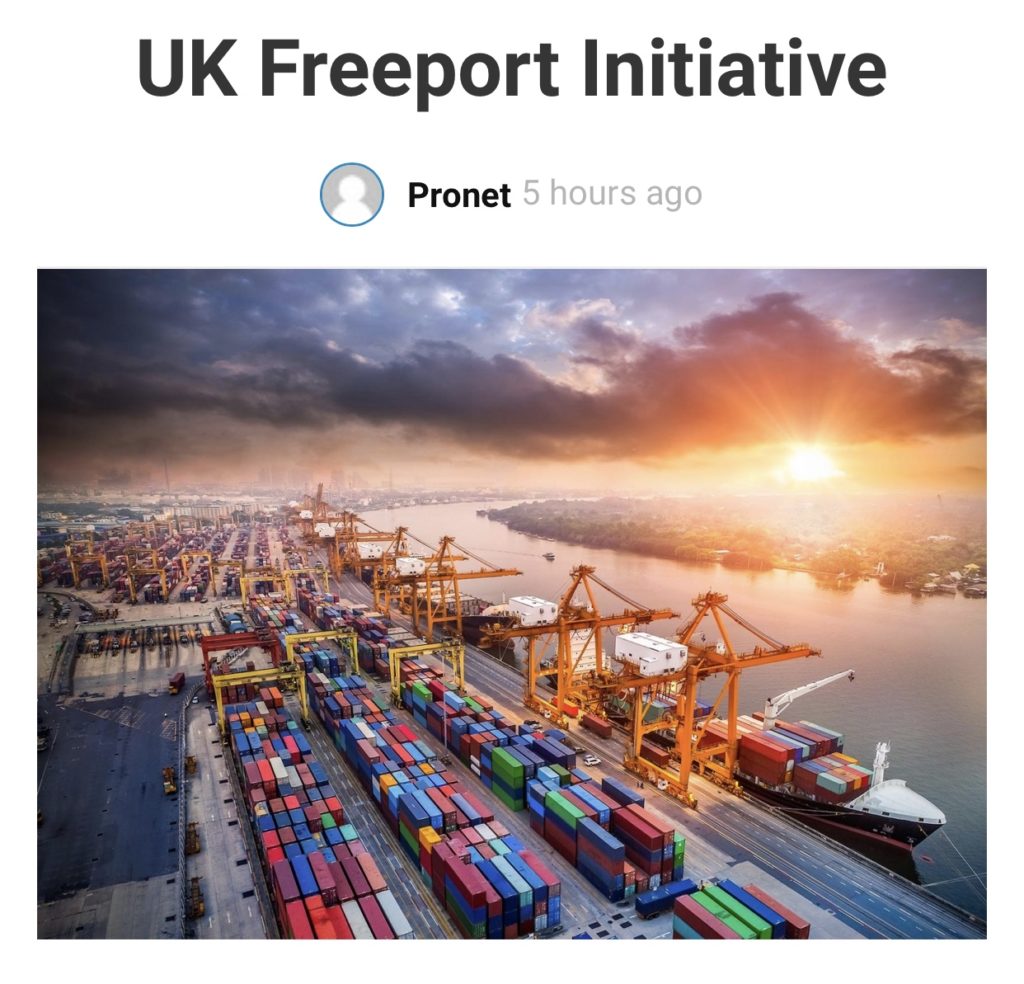UK Freeport Initiative
The Global Economic Neural Networks (GENN) writes, that if the freeport initiative can be fully realised, this could lead to significant gains for the UK as some of the GENN nodes emerge in its jurisdiction.
I have worked with colleagues on these ideas and we have together submitted a paper to the UK Government consultation round.
The idea [about UK Freezones] was developed by the current Chancellor Rishi Sunak while he was a back bench MP and was quickly embraced by the current Trade Secretary, Liz Truss. The vision is to create a number of free ports that would be more than just Free Trade Zones, but would include elements of Special Economic Zones and Enhanced Economic Zones. They would include regulatory frameworks that could be pro-competitive and generate economic growth. Done right, they could become engines of economic growth connected in to GENN and carrying trade superhighways.

Former Director of the World Customs Organisation, Lars Karlsson, Frank Dunsmuir, head of international trade at Fujitsu, and Daniel Gottschald, head of Technical University Munich’s international venture arm, and I have written a detailed response to the UK government’s free port consultation which we attach here. Our response, and the freeport initiative shows that even well established countries that are in the G7 can demonstrate policy innovations which can be quite dramatic in conception and design.
In our response, we highlight the potential economic value of the programme.
The UK’s freeports initiative is potentially a powerful tool in the revitalisation of the UK and global economy, post Covid-19. There will be renewed emphasis on ensuring the resilience of global supply chains, and the increasingly important role that global nodes will play in trade superhighways, as we will seek more and better information about supply chains. In addition, it is likely that regional supply chains will rise in importance as political pressures drive more onshoring. In both of these scenarios, freeports have an important role to play.
But freeports cannot be looked at in isolation. The UK will need to operate in four dimensions after the crisis. First, it must play a role in promoting better co-ordination and consistency between global institutions. Special Economic Zones could play an important role and need to be supported by the WTO, IMF, World Bank and World Customs Organisation as legitimate tools for economic growth. Second, the UK must promote international co-operation via maintenance of a liberal and open economic order. There will be increased pressure for autarkic and protectionist policy responses post Covid-19. Since the US is increasingly embracing such measures, the countries that promote such open policies grows thin. The UK will have to step up and maintaining open and competitive policies at home, including freeports, is an important way of achieving this. Third, national level economic reform and the adoption of a pro-competitive regulatory reform set of policies will be important. Fourth, subnational policies such as freeports, Free Trade Zones and special economic zones are critical to ensuring the delivery of national level reforms, as these can be tested in zones (especially where the zones can operate in different ways in a decentralised and more localised system). Freeports in this context can also contribute to all of these dimensions of needed policymaking. They can act as nodes on global trade superhighways in some cases and in others they can be more regional nodes as inevitably some supply chains shorten and become more regional. Major trade superhighways are likely to require more focus in order to maintain resiliency, including greater use of technology to ensure visibility into supply chains where such global nodes become ever more important.
It is to be hoped that as we emerge from economic ravages of Covid-19 and our responses to it, the UK freeport initiative can drive economic growth.
Source: Globaleconomies
You must be logged in to post a comment.